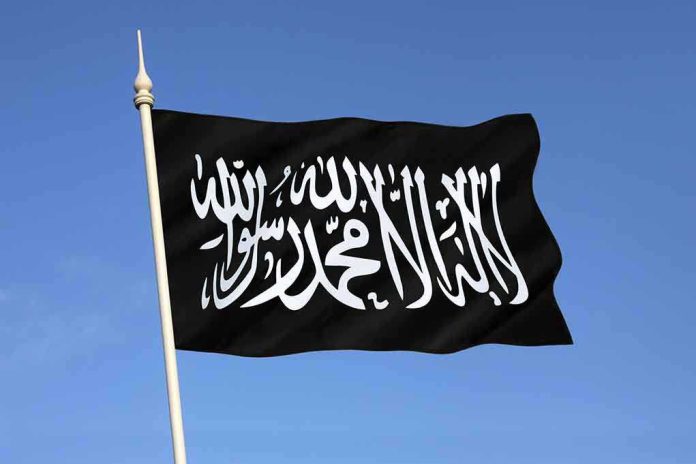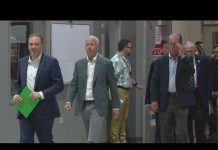
When a Michigan mayor tells a Christian resident he is “not welcome” for objecting to a street named after a controversial figure, it sends a chilling warning to all Americans who dare defend traditional values and free speech.
Story Snapshot
- Dearborn’s mayor publicly rebuked a local Christian for objecting to honoring Osama Siblani, sparking outrage and debate over free speech.
- The controversy exposes escalating tensions over minority rights, free expression, and recognition of divisive figures in American cities.
- The viral incident has fueled political realignment in Michigan as frustrated voters scrutinize leftist policies and perceived intolerance.
- National attention intensifies as the incident underscores the erosion of dissent and the rise of identity politics in public life.
Mayor’s Rebuke Sparks National Outrage
During a recent Dearborn city council meeting, Mayor Abdullah Hammoud harshly condemned resident Ted Barham, a Christian who objected to renaming a city street for Osama Siblani. Barham cited Siblani’s history of statements that he viewed as sympathetic to violent groups, arguing the honor was inappropriate for a diverse American city. Mayor Hammoud dismissed Barham’s concerns as Islamophobia, declared him unwelcome in Dearborn, and said he would celebrate if Barham left. The confrontation, captured on video, quickly went viral and triggered widespread criticism from conservative and Trump-supporting communities, who saw the mayor’s response as a direct attack on free speech and dissent.
This incident unfolded against the backdrop of Dearborn’s large and politically active Arab American and Muslim population. Historically, Dearborn has experienced both interfaith cooperation and cultural friction, especially on issues involving the Middle East and American foreign policy. Recent years have witnessed growing political engagement among Michigan’s Muslim and Arab communities, especially in response to U.S. policy on Israel and Gaza. The naming of a street after Siblani, founder of The Arab American News and a figure controversial for his coverage of militant groups like Hamas and Hezbollah, ignited existing tensions over public honors and recognition.
Escalating Divides Over Free Speech and Minority Rights
The mayor’s forceful condemnation of Barham highlights a troubling trend: dissent on sensitive issues is increasingly labeled as bigotry rather than debated on its merits. Many observers, including civil rights advocates, worry that equating legitimate criticism with hate speech has a chilling effect on free expression. Dearborn’s Christian and Jewish residents, in particular, have voiced concern about intolerance toward those who object to honoring divisive figures. The city’s Muslim leadership, meanwhile, frames the mayor’s defense as protection against Islamophobia. This polarization reflects a deeper national debate about the boundaries of free speech, religious recognition, and the limits of identity politics in American democracy.
The situation has gained particular prominence as Michigan’s Muslim electorate reevaluates political loyalties. Disillusionment with past Democratic policies—especially regarding Gaza and progressive social agendas—has led some community leaders to express support for Donald Trump, signaling a possible realignment in a key battleground state. National political figures have seized on the Dearborn controversy, with Trump allies citing it as further evidence of intolerance and government overreach by left-leaning officials. The viral video, and the mayor’s refusal to apologize, have fueled ongoing debate as both parties compete for support among minority and faith-based voters.
Broader Impact on Political Climate and Community Relations
The fallout from Dearborn’s council meeting reaches far beyond city limits. In the short term, it has heightened local tensions and drawn intense scrutiny of officials’ willingness to suppress dissenting voices. Long-term effects could include a realignment of Muslim voters, increased polarization, and a reevaluation of how cities honor public figures. The controversy also risks eroding trust between religious communities and undermining interfaith cooperation. At the national level, media coverage of the incident exemplifies the weaponization of identity politics and raises questions about the future of free speech and traditional values in America’s changing political landscape.
'Sharia in Dearborn': MAGA Blasts Michigan Mayor Who Ripped 'Islamophobe' Constituent in Viral Clip https://t.co/vZQVvzj93K
— Mediaite (@Mediaite) September 17, 2025
Expert analysis underscores the complexity of these dynamics. Political analysts see Michigan’s shifting alliances as emblematic of broader changes in American politics, while civil rights advocates caution against the dangers of labeling dissent as bigotry. Scholars of interfaith relations warn that such confrontations can deepen divides and hinder constructive dialogue. Amid these challenges, the Dearborn incident stands as a stark reminder of the need to defend constitutional rights, uphold traditional values, and resist the erosion of free expression—core concerns for Americans who feel sidelined by radical agendas and government overreach.
Sources:
Why Muslims in Michigan are backing ‘Islamophobic’ Donald Trump
Donald Trump Ramadan iftar dinner Muslim friends in Michigan
Mayor: Christian not welcome for objecting to street name







